Almond butter
Preparation time5 min
Waiting time3 min
Cooking time3 min
Ready in11 min
Source of valuable fatty acids, easily digestible proteins and minerals.
Almond butter is a tasty and healthy butter with numerous properties and benefits: nutritious, energizing, rich in unsaturated fats, omega 3 fatty acids, easily digestible proteins, minerals (magnesium, potassium, manganese and copper) and an important source of vitamin E and B2 (riboflavin). These benefits make almond butter an important ally for the cardiovascular system and more. Being rich in easily digestible proteins, it is ideal for athletes.
Servings: 10 servings
~200 g almond butter, ~10 servings at 20g serving
Ingredients
Estimated cost: 2.8 €
Materials
- - mixer/blender with container, for grinding almonds
- - containers
- - tray or pan for baking the almonds ~3 minutes
Preparation
 We prepare the quantities of ingredients.
We prepare the quantities of ingredients.
The oils presented (grape seed oil and coconut oil) are the most recommended, but if you don't have any you can use other types of oil, the idea would be to have as neutral a taste as possible. Put the almonds in a tray and bake them in the oven at 180º C for ~3-5 minutes! Almonds can also be baked in a pan, on medium heat. It is good to mix with a wooden spoon and we have to be careful because they can burn. Basically, by drying/baking, the fats will be released more easily and we will ensure obtaining a creamy paste.
Put the almonds in a tray and bake them in the oven at 180º C for ~3-5 minutes! Almonds can also be baked in a pan, on medium heat. It is good to mix with a wooden spoon and we have to be careful because they can burn. Basically, by drying/baking, the fats will be released more easily and we will ensure obtaining a creamy paste. After they have been baked, leave the almonds to cool slightly (2-3 minutes), after which they will be added to the bowl of the mixer / blender.
After they have been baked, leave the almonds to cool slightly (2-3 minutes), after which they will be added to the bowl of the mixer / blender. Add the coconut oil to the blender bowl.
Add the coconut oil to the blender bowl. Add the grape seed oil to the blender bowl.
Add the grape seed oil to the blender bowl. We add the bee honey to the blender bowl.
We add the bee honey to the blender bowl. We add salt (optional).
We add salt (optional). Grind / mix all the ingredients until a creamy paste is formed - almond butter.
Grind / mix all the ingredients until a creamy paste is formed - almond butter.
Mixing/grinding times differ depending on several criteria (mixer type, how well the almonds were roasted, ...), between 30 seconds and 1-2 minutes, but it's best to orient yourself visually.- At the end, transfer the almond butter to a container and keep it mandatory in the refrigerator, covered with a lid or food foil (as tight as possible).
This almond butter can be stored in the refrigerator for up to 3 months, but we recommend making small quantities and consuming them within a few days.
Administration
Being a versatile and delicious dish, it can easily be added to the daily menu, in various dishes or served as such.
It is ideal for breakfast as an addition to oatmeal or eaten as a spread.
I personally prefer it in the morning, for breakfast, on slices of bread or rounds.
Ideally, it is recommended ~10-20 grams of almond butter per day, in the morning for breakfast.
⚠ Being a caloric product, it is recommended, not to exceed 40 g of almond butter per day, for an adult weighing ~80 kg.
It can be used for long periods of time, with the recommendation to take a break of 1-2 weeks after 2-3 months.
It is ideal for breakfast as an addition to oatmeal or eaten as a spread.
I personally prefer it in the morning, for breakfast, on slices of bread or rounds.
Ideally, it is recommended ~10-20 grams of almond butter per day, in the morning for breakfast.
⚠ Being a caloric product, it is recommended, not to exceed 40 g of almond butter per day, for an adult weighing ~80 kg.
It can be used for long periods of time, with the recommendation to take a break of 1-2 weeks after 2-3 months.
Observations
Oils
→ The amount of oils used can vary depending on how thin or thick you want your almond butter to be.
→ Also, any type of oil can be used, but an oil with a neutral taste is recommended so as not to alter the basic taste of the main ingredient - almonds. For example, grape seed oil has a neutral taste, but it is also very valuable from a nutritional point of view. Coconut oil is a very good binder, especially when the product is refrigerated, helping to solidify and creaminess.
→ As a preparation rich in protein and healthy fats, almond butter is excellent for various fitness recipes, for breakfast or desserts.
→ Proteins contribute to the growth and maintenance of muscle mass and support bone health.
→ Healthy fats support the cardiovascular system and practically help maintain cholesterol levels.
→ Almond butter helps regulate insulin and blood sugar levels.
Nutritional values for 100 g of almond butter
Storage and validity:
→ To keep hermetically closed, in a cool, dark and dry place, ideally in the refrigerator.
→ Shelf life: can be kept in the refrigerator, hermetically sealed up to 3 months.
→ Once opened, consume it as soon as possible, maximum one month.
→ It is recommended to prepare small quantities, so that they can be consumed in the shortest possible time.
→ The amount of oils used can vary depending on how thin or thick you want your almond butter to be.
→ Also, any type of oil can be used, but an oil with a neutral taste is recommended so as not to alter the basic taste of the main ingredient - almonds. For example, grape seed oil has a neutral taste, but it is also very valuable from a nutritional point of view. Coconut oil is a very good binder, especially when the product is refrigerated, helping to solidify and creaminess.
→ As a preparation rich in protein and healthy fats, almond butter is excellent for various fitness recipes, for breakfast or desserts.
→ Proteins contribute to the growth and maintenance of muscle mass and support bone health.
→ Healthy fats support the cardiovascular system and practically help maintain cholesterol levels.
→ Almond butter helps regulate insulin and blood sugar levels.
Nutritional values for 100 g of almond butter
- Calories: 650 Kcal
- Total fat: 60 g
- Saturated fat: 4.4 g
- Carbohydrates: 9.5 g
- Sugars: 5.0 g
- Protein: 24 g
- Fiber: 12 g
- Sodium: 1 mg
- Riboflavin (B2): 88%, 1138 mg
- Copper: 115%, 1031 mg
- Manganese: 95%, 2179 mg
- Phosphorus: 69%, 481 mg
- Potassium: 16%, 733 mg
- Selenium: 7%, 4.1 mg
DZR = recommended daily dose
Storage and validity:
→ To keep hermetically closed, in a cool, dark and dry place, ideally in the refrigerator.
→ Shelf life: can be kept in the refrigerator, hermetically sealed up to 3 months.
→ Once opened, consume it as soon as possible, maximum one month.
→ It is recommended to prepare small quantities, so that they can be consumed in the shortest possible time.
Effects and benefits
- nourishing, energizing;
- an excellent source of healthy unsaturated fats (valuable omega 3 fatty acids);
- an excellent source of easily digestible proteins;
- a generous source of antioxidants, being rich in flavonoids;
- an excellent source of vitamins E and B2 (riboflavin);
- an excellent source of minerals: magnesium, potassium, manganese and copper;
- an excellent source of micro- and macro-nutrients;
- a source of arginine, almonds being rich in arginine;
- reduces the risk of heart disease;
- contributes to lowering cholesterol;
- supports heart health, stimulating blood flow, oxygenation, and the supply of nutrients (thanks to an impressive amount of magnesium and potassium);
- helps maintain good blood pressure (potassium);
- helps normalize heart rate (thanks to omega 3 fatty acids);
- reduce the risk of blood clot formation;
- helps prevent myocardial infarction (heart attack);
- contributes to glycemic regulation (regulates blood sugar levels);
- ideal for diabetics (unsweetened version) because it does not cause a sharp increase in blood sugar and insulin;
- perfect for physically active people who have an increased need for calories;
- helps prevent oxidative stress;
- helps reduce the risk of gallstones in women;
- maintains brain health;
- supports the health of the digestive system, being rich in fiber;
- although caloric, those who consume it moderately do not accumulate weight;
- helps reduce inflammation;
Side effects
- allergies, if you are allergic to any of the ingredients;
- being a caloric product, if consumed in large quantities, almond butter can cause an increase in body weight.
Contraindications
- Not for people allergic to almonds.
Another information
→ Consuming almonds (in various forms: as such, hydrated, butter, ...) supports the cardiovascular system, contributing to the health of arterial walls, regulation of blood flow, reducing inflammation, which could cause heart disease.
→ Almonds are rich in arginine, an amino acid needed to produce a molecule called nitric oxide which relaxes blood vessels and facilitates flow sanguine.
→ Almonds are rich in arginine, an amino acid needed to produce a molecule called nitric oxide which relaxes blood vessels and facilitates flow sanguine.
- Almond butter has more calories than peanut butter.
- Almond butter has more fiber than peanut butter.
- Almond butter has a higher calorie and fat content, while peanut butter has a higher protein and carbohydrate content.
- Peanut butter contains more vitamin E, iron and calcium than peanut butter almonds.

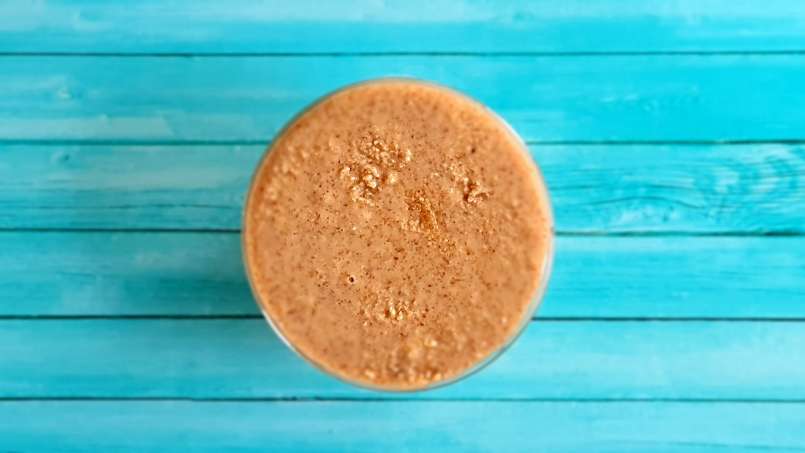
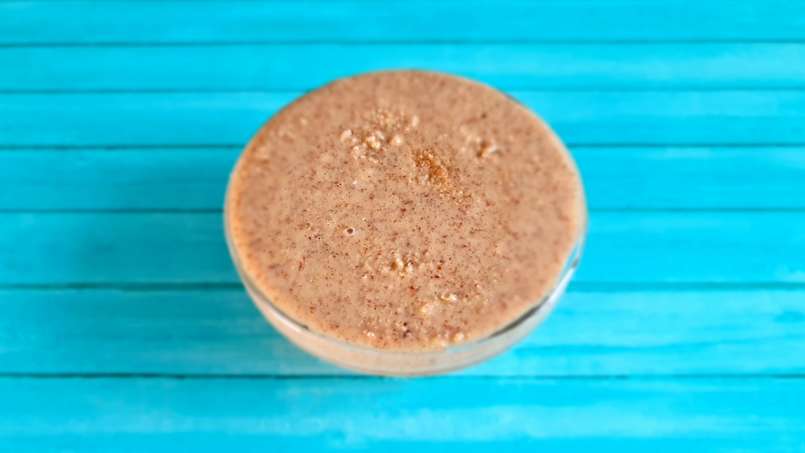
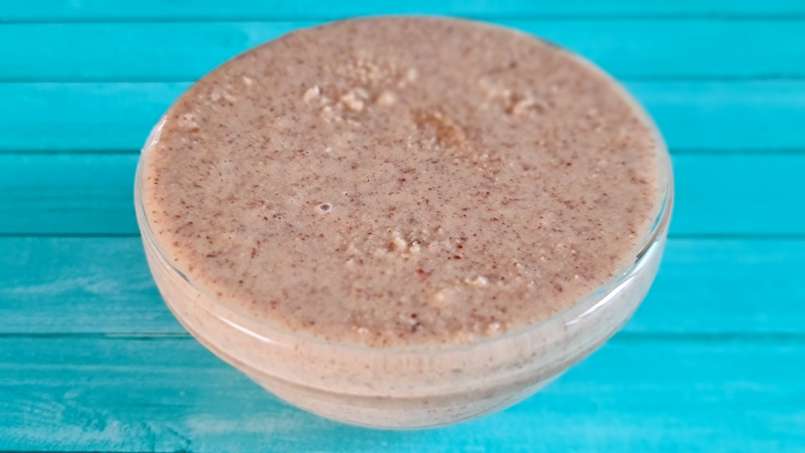
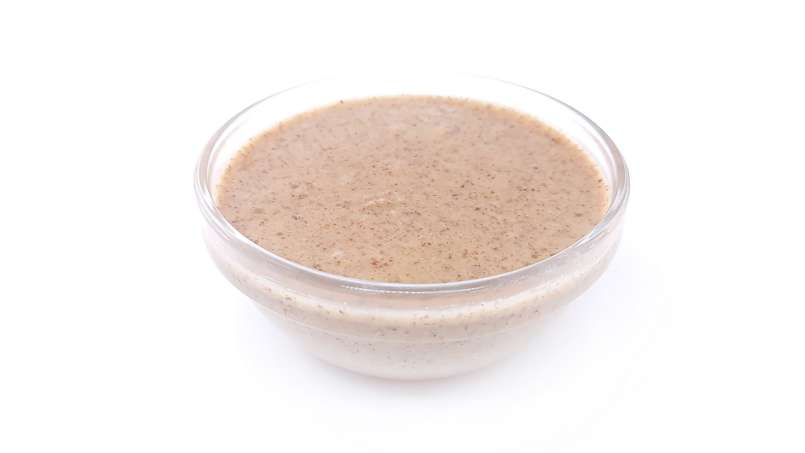
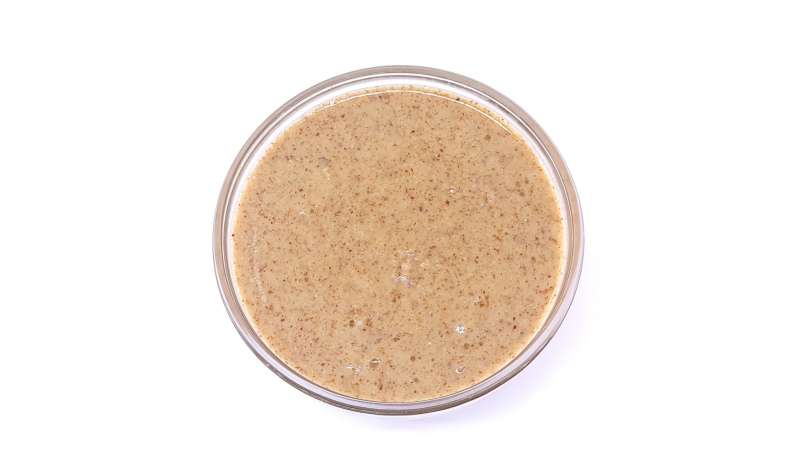
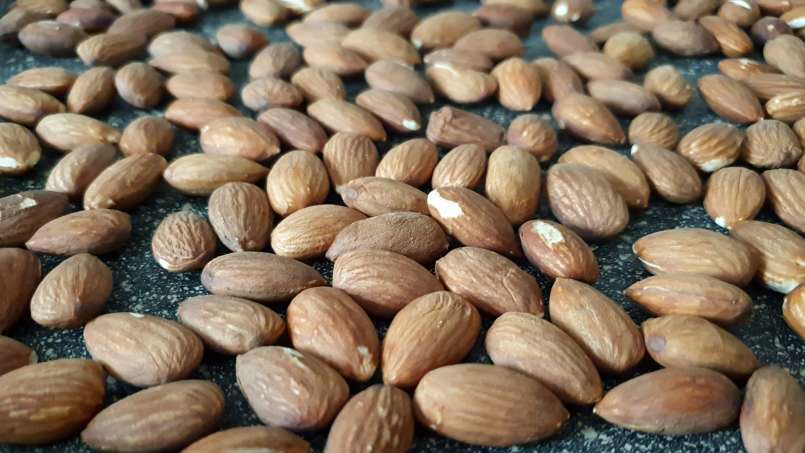
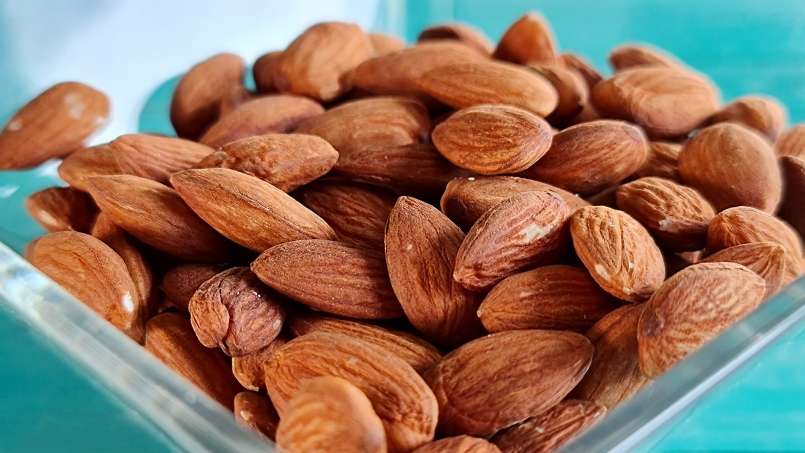
Comments